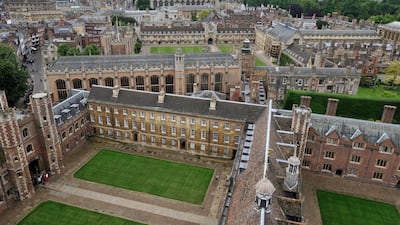People who are “super memorisers” are being sought by scientists to take part in new research into people with exceptional memories.
University of Cambridge academics are trying to uncover why some people are much better at remembering things than others.
People who believe they have an exceptional memory are being urged to take an online survey and test.
Based on their performance, some will be invited to Cambridge to have a brain scan so researchers can examine the images in detail to assess whether there are any differences in structure or function.
“Memory is one of the best understood psychological processes in terms of brain networks and yet we still don’t really know why some people have exceptional memories,” said Prof Jon Simons from the department of psychology at the University of Cambridge.
“That’s why we’re inviting people to take part in our study.”
The researchers are also aiming to discover whether people who are autistic or neurodiverse are more likely to have exceptional memory.
Brain candy: Five best foods to eat for memory, concentration and overall brain health — in pictures
The team has previously worked with writer Daniel Tammet, who is autistic, has synaesthesia and can recall the number pi to 22,514 digits.
“You don’t need to have won any competitions to take part or to consider yourself neurodiverse — and you certainly don’t need to be able to recite pi to 22,000 digits,” said Prof Sir Simon Baron-Cohen, director of the Autism Research Centre at Cambridge University and lead investigator of the study.
“We’re looking for anyone who thinks they might be a ‘super memoriser’ to try out our memory tests.”
Dr Carrie Allison, also from the Autism Research Centre, said: “We hope that people will enjoy taking part in this study and in the process contribute to helping us understand more about memory and whether exceptional memory is related to autism.
“For decades, autism research has focused on disability, but this study is a wonderful opportunity to focus on strengths.”
People aged 16 to 60 are being invited to take part in the online memory tests. Tasks include memorising a phone number or patterns on a chess board.







